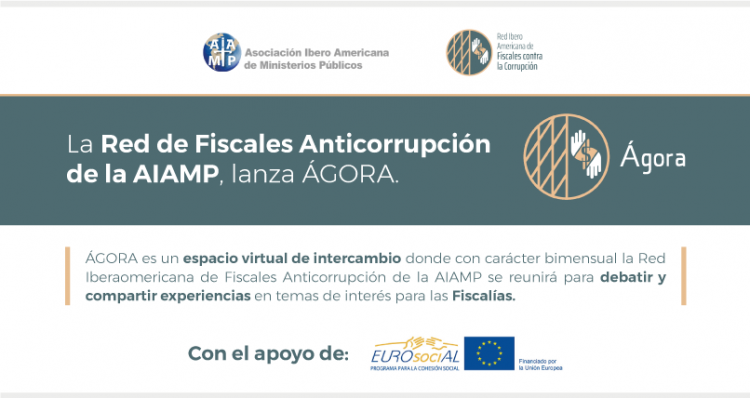The Ágora methodology, part of the AIAMP framework with the support of EUROsociAL+, seeks to generate exchange opportunities between Ibero-American prosecutors.

Within the framework of the Ibero-American Association of Public Ministries’ Network of Prosecutors against Corruption (AIAMP), the Brazilian Public Prosecutor’s Office has launched Ágora, a new project created with the support of the European Union Cooperation EUROsociAL+ Programme. This is a virtual space that aims to encourage and provide opportunities for the exchange of experiences between prosecutors in Ibero-American countries. It is based on a methodology that ensures a flexible, collaborative learning system.
Ágora meetings will take place every two months to discuss topics previously selected by the participating prosecutor’s offices. The first meeting will be held on Friday 17 September. The following topics will be addressed at the first five scheduled sessions: the effectiveness of the accusatory criminal system, the exchange of experiences on the organisation models of specialised anti-corruption units, the repatriation of assets and the agreements for the division of assets, the protection of whistle-blowers and informants and the support measures in place between countries and an analysis from comparative law of the national limitation and suspension systems.
Through Ágora, it will be possible to technically develop topics of interest to the network itself, such as collaborative justice mechanisms and corruption as a facilitator of other crimes, such as human trafficking, among others. In addition, the online platform will be the means for the formation of the strategic positioning of the network in international and regional debates. For example, the preparation of a declaration by the network within the framework of the United Nations General Assembly or on the occasion of an international date, such as International Anti-Corruption Day (9 December).
The initiative arose from the need for an institutional partnership methodology between prosecutors to exchange information on the investigation of corruption cases. It was also seen that it would be beneficial to facilitate the exchange of experiences in order to generate a greater awareness of the functions and competencies of each body and to promote trust and coordinated work and training, specialisation and permanent updating.



